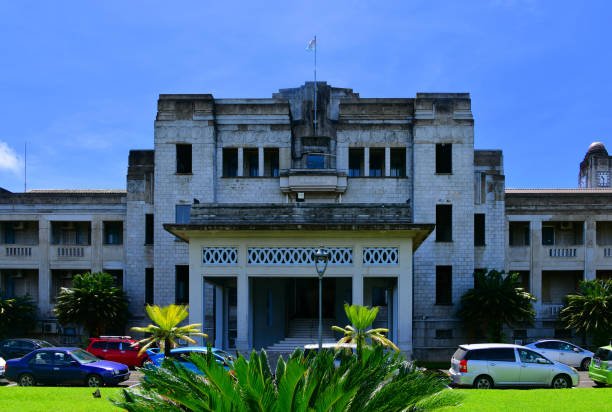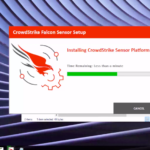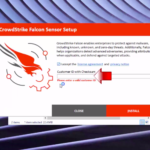Fiji, a breathtakingly beautiful island nation in the South Pacific, is home to a diverse population and a unique governmental system. Understanding the intricacies of the Fijian government directory is essential for both citizens and visitors alike, as it provides insight into the nation’s administrative framework and decision-making processes. This comprehensive guide aims to shed light on the various branches, ministries, and agencies that make up the Fijian government, offering a detailed overview of their roles and responsibilities.
The Executive Branch
- The President
- Head of State
- Appointed by the Great Council of Chiefs
- Ceremonial role with limited powers
- The Prime Minister
- Head of Government
- Leader of the majority party in Parliament
- Responsible for the overall direction and management of the government
- The Cabinet
- Consists of the Prime Minister and other ministers
- Responsible for formulating policies and making important decisions
The Legislative Branch
- The Parliament
- Bicameral legislature
- Consists of the Senate (upper house) and the House of Representatives (lower house)
- Responsible for passing laws and scrutinizing the actions of the executive branch
- The Senate
- Comprised of 24 members appointed by the President
- Represents the interests of various groups and communities
- The House of Representatives
- Comprised of 51 members elected by popular vote
- Serves as the primary legislative body
The Judicial Branch
- The Supreme Court
- Highest court in Fiji
- Responsible for interpreting the Constitution and upholding the rule of law
- The Court of Appeal
- Hears appeals from the High Court and other lower courts
- The High Court
- Deals with serious criminal cases and civil matters of significant importance
Ministries and Agencies
- Ministry of Economy
- Responsible for economic policy, planning, and management
- Oversees areas such as finance, trade, and investment
- Ministry of Foreign Affairs
- Handles Fiji’s international relations and diplomacy
- Represents the country in regional and global forums
- Ministry of Education, Heritage, and Arts
- Oversees the education system, from primary to tertiary levels
- Promotes and preserves Fiji’s cultural heritage and arts
- Ministry of Health and Medical Services
- Responsible for public health and the provision of medical services
- Manages hospitals, clinics, and healthcare facilities across the country
- Ministry of Agriculture
- Promotes sustainable agricultural practices
- Supports the development of the agricultural sector
- Ministry of Lands and Mineral Resources
- Manages land ownership and use
- Regulates the exploration and exploitation of mineral resources
- Ministry of Environment and Waterways
- Addresses environmental concerns and promotes sustainability
- Manages water resources and waterways
- Fiji Revenue and Customs Service
- Responsible for collecting taxes and customs duties
- Ensures compliance with tax laws and regulations
- Fiji Police Force
- Maintains law and order throughout the country
- Investigate and prevent crimes
- Fiji Military Forces
- Responsible for the defense and security of the nation
- Includes the Republic of Fiji Military Forces (RFMF)
Points to Note:
The Fijian government is a parliamentary democracy with a President as the Head of State and a Prime Minister as the Head of Government.
The executive branch, led by the Prime Minister and Cabinet, is responsible for implementing policies and running the government.
The legislative branch, comprising the Parliament, is responsible for passing laws and holding the executive branch accountable.
The judicial branch, headed by the Supreme Court, interprets and upholds the Constitution and ensures the rule of law.
Various ministries and agencies are responsible for specific areas of governance, such as education, health, agriculture, and the environment.
The Fiji Revenue and Customs Service, Fiji Police Force, and Fiji Military Forces play crucial roles in maintaining order, security, and defense.
Ministries and Agencies in Fiji
| Ministry/Agency | Responsibilities |
|---|---|
| Ministry of Economy | Economic policy, finance, trade, investment |
| Ministry of Foreign Affairs | International relations, diplomacy |
| Ministry of Education, Heritage, and Arts | Education system, cultural heritage, arts |
| Ministry of Health and Medical Services | Public health, medical services |
| Ministry of Agriculture | Agricultural development, sustainable practices |
| Ministry of Lands and Mineral Resources | Land ownership, mineral resource management |
| Ministry of Environment and Waterways | Environmental sustainability, water resource management |
| Fiji Revenue and Customs Service | Tax collection, customs duties |
| Fiji Police Force | Law enforcement, crime prevention |
| Fiji Military Forces | National defense, security |
Citizen Engagement and Participation
Effective governance requires active citizen participation and engagement. The Fijian government provides various platforms and mechanisms for citizens to voice their concerns, offer suggestions, and participate in decision-making processes. These include:
Public Consultations
The government organizes public consultations on various issues and policies, allowing citizens to provide input and feedback.
Parliamentary Committees
Citizens can participate in parliamentary committee hearings and submit written submissions on specific topics or legislation.
Citizen Feedback Channels
Online portals, hotlines, and dedicated email addresses are available for citizens to submit queries, complaints, or suggestions to relevant ministries and agencies.
Civil Society Organizations
Non-governmental organizations (NGOs) and civil society groups often serve as intermediaries, advocating for citizens’ interests and engaging with the government on their behalf.
Local Government Councils
At the local level, town and city councils provide avenues for citizens to participate in decision-making processes that directly impact their communities.
By actively engaging with the government and participating in these channels, Fijian citizens can contribute to the development of policies and programs that better serve their needs and aspirations.
FAQs (Frequently Asked Questions)
How is the Prime Minister of Fiji chosen?
The Prime Minister of Fiji is the leader of the majority party in the Parliament. After a general election, the leader of the party with the most seats in the House of Representatives is typically appointed as the Prime Minister by the President.
What is the role of the Great Council of Chiefs in the Fijian government?
The Great Council of Chiefs is a traditional body that advises the President on matters related to the appointment of the President, as well as other issues of national importance. However, its role has been reduced in recent years, and its future is subject to ongoing discussions.
How are members of the Senate appointed?
The 24 members of the Senate are appointed by the President on the advice of the Prime Minister and the Leader of the Opposition. They are appointed to represent various groups and communities within Fiji.
Can citizens directly contact government officials or ministers?
Yes, citizens can directly contact government officials and ministers through various channels, such as email, phone, or by attending public consultations or meetings. However, it is advisable to follow proper protocols and procedures for formal communication.
How can I access information about government policies and programs?
Information about government policies and programs is typically available on the websites of respective ministries and agencies. Additionally, citizens can request information through official channels, such as the Freedom of Information Act.
What is the role of the Fiji Revenue and Customs Service?
The Fiji Revenue and Customs Service is responsible for collecting taxes and customs duties in Fiji. It ensures compliance with tax laws and regulations and plays a crucial role in generating revenue for the government.
How can I report instances of corruption or misconduct within the government?
Instances of corruption or misconduct within the government can be reported to the Fiji Independent Commission Against Corruption (FICAC), which is responsible for investigating and prosecuting such cases.
What is the process for obtaining government-issued documents or licenses?
The process for obtaining government-issued documents or licenses varies depending on the specific document or license required. Citizens should contact the relevant ministry or agency for detailed information and procedures.
Closing Words
The Fijian government directory is a comprehensive guide to the nation’s administrative structure, outlining the various branches, ministries, and agencies that shape the country’s governance. By understanding the roles and responsibilities of these entities, citizens and visitors alike can gain valuable insights into the decision-making processes and policy formulation in Fiji.










